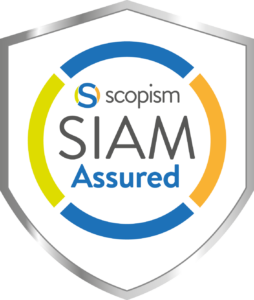Customer organizations rely on reliable and efficient supply chains that meet regulatory requirements to succeed in today’s fast-paced and controlled business environment.
Supply chain disruptions, non-compliance, and poor service delivery create serious consequences that affect customer trust and financial stability. In this article, we discuss how supplier accreditation can help.
Businesses now recognize accreditation as essential to sustain quality standards while reducing risks and improving procurement operations. The accreditation process confirms that suppliers fulfil recognized industry benchmarks, which reassures stakeholders that their offerings comply with best practices and legal standards.
Why accreditation matters
Reducing Risk and Enhancing Compliance: The primary obstacle organizations encounter when they collaborate with numerous suppliers is risk management. Financial losses and damage to reputation often result from subpar products alongside inconsistent service delivery and violations of regulations. Businesses benefit from the added assurance that accredited suppliers provide because these partners undergo independent assessments to meet established standards. The value of accreditation becomes even more significant in industries that demand strict safety and compliance standards, such as healthcare and finance, as well as IT service management. St John Ambulance, for example, makes accreditation a crucial part of its procurement procedures to ensure all procured products and services meet safety and quality standards.

Streamlining Procurement and Due Diligence Activities: The evaluation of new suppliers requires significant time investment and poses considerable complexity. Procurement teams can sometimes find evaluating supplier reliability and compliance challenging when they lack standardized evaluation methods. Accreditation functions as a preliminary selection tool that decreases the necessary time and resources for performing due diligence. Businesses partnering with accredited suppliers benefit from accelerated onboarding processes and reduced paperwork, eliminating delays and enabling them to prioritize their primary operations confidently.
Competitive Advantage and Market Access: Suppliers who obtain accreditation gain both compliance assurance and a competitive edge in the marketplace. Organizations choose accredited partners to show their dedication to maintaining high standards of quality and transparency while continuously improving their processes. To participate in various industry and government tenders, suppliers must maintain particular accreditations as eligibility requirements. Suppliers who lack accreditation may forfeit access to important business opportunities. Accredited suppliers benefit from increased trustworthiness, which enables them to receive faster approval and access larger markets.
Transparency and Trust: Modern consumers and businesses have developed higher standards for supplier accountability and ethical product sourcing. The accreditation system establishes a clear set of standards that suppliers must follow to maintain high-quality practices and transparency. Industries operating through global supply chains require special attention because regulatory requirements differ in various regions. Organizations that opt for accredited suppliers can prove to customers, stakeholders and auditors that their supply chain choices prioritize quality and integrity.
How do we get started with accreditation?
Begin with these key steps when you want to incorporate supplier accreditation into your procurement strategy:
- Gain knowledge of industry standards by exploring accreditation frameworks in your sector and identifying the most important certifications.
- Review your existing suppliers to determine which ones have accreditation and pinpoint any existing compliance gaps.
- Establish accreditation benchmarks that determine essential supplier standards and incorporate these requirements into your procurement guidelines.
- Build relationships with accredited suppliers because recognized accreditations enhance trust and compliance.
- Support non-accredited suppliers in their journey to certification, which will improve their reliability and match your company’s requirements.
Organizations that emphasize accreditation build durable supply chains and minimize risks which enables them to surpass competitors and deliver top-notch service to their customers. You can find more information and resources about implementing supplier accreditation within your organization here.


